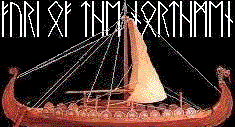
Originally Posted by
Dux Corvanus
Research? Yes, lots. Results? Not many, I'm afraid. You know, ancient cultures had not a music notation system. And since -kinda obvious- there were no recordings, all our sources limit to:
1) Instruments. We have depictions, descriptions. Sometimes even the instruments themselves. So we know how they sounded. But we don't know WHAT they played with them. War horns, etc, are an easy matter. But the precise music made with ensembles of complex instruments -flutes, auloi, harps, lyres, psalters, kytharoi, etc- or voice, is mostly a mystery to us.
2) Folklore and traditions. We may know a little about ancient music thru the musical baggage of relatively isolated cultures with ancient traditions. Unfortunately, much of this body is sure to have been transformed, influenced or created in relatively recent times, and there's no way to know what and how much. There may be remains of Celtic music typical uses in modern western folk, but we'll never know what part of it is the purest. Western world music has a varied influence of Greek, Hebrew, Egyptian, Celtic and other ancient cultures, but is a confusing matter.
3) Theoretical music treaties of the ancient. There are a lot of ancient Greek treaties about music. So we know how Greek music worked, the rules it used, the occasions where it was used, etc. Ancient Greek music is the only one we can recreate to a certain extent. But, except for some scattered fragments of Hellenistic tunes written down in a primitive notation system, we don't have any music itself.
So, all we can do is resort to analogy. We have the Greek fragments and music theory, and the traditional music of several cultures around the world, but, to be sincere, all that a modern researcher can do is some kind of reasonable guess, and, hence, a well-based fake.





 Reply With Quote
Reply With Quote

 *shudders*
*shudders* 









 RTR RTR RTR RTR RTR RTR RTR
RTR RTR RTR RTR RTR RTR RTR 




 Incidentally I chose, I chose option: "1: What is that you say? Europa Barbarorum? Gah. Let us never speak of this again.".
Incidentally I chose, I chose option: "1: What is that you say? Europa Barbarorum? Gah. Let us never speak of this again.".





Bookmarks